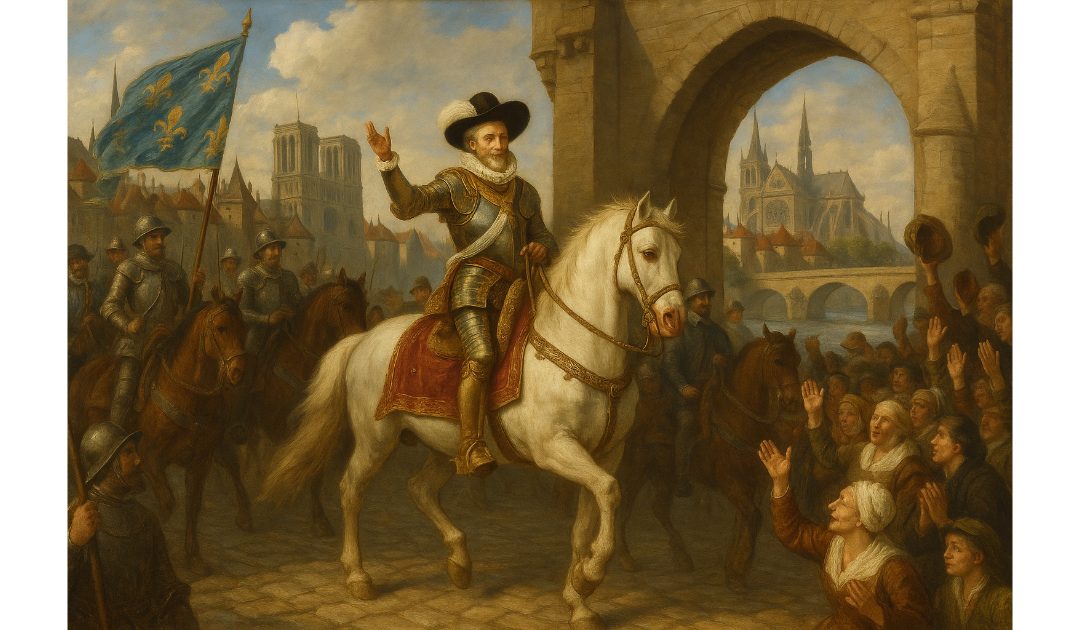On the 25th of July, 1593, King Henry IV of France publicly converted from Protestantism to Roman Catholicism. Henry, or Henri in the French of the time, is a key character in The Suggested Assassin, the third book in the Sir Anthony Standen Advetures.
King Henry IV of France’s conversion from Protestantism to Catholicism in 1593 was a pivotal event, both for his reign and for the religious landscape of France. Born in 1553 in Pau, Henry was raised as a Huguenot, the French term for Protestants influenced by Calvinist theology. As the head of the House of Bourbon and a staunch Protestant, his early life was deeply entwined with the religious conflicts that ravaged France during the Wars of Religion.
Henry ascended to the French throne in 1589 after the assassination of his distant cousin, Henry III, becoming the first monarch of the Bourbon dynasty. However, his Protestant faith posed a significant obstacle. France was predominantly Catholic, and a Protestant king faced fierce resistance from the powerful Catholic League, supported by Spain and segments of the French nobility. Despite his military prowess and political acumen, Henry’s claim to the throne was untenable without addressing this religious divide.
Recognising the need for unity and stability, Henry made a pragmatic decision. In 1593, he publicly converted to Catholicism, reportedly declaring, “Paris is well worth a Mass,” a phrase that encapsulates the political calculus behind his conversion. This act was not merely a personal religious shift but a strategic manoeuvre designed to consolidate his power, pacify Catholic opposition, and bring an end to the protracted civil conflict.
Henry’s conversion had profound implications. It paved the way for his formal coronation at Chartres in 1594, as Reims, the traditional site, remained under League control. His acceptance by the Catholic majority helped to heal the fractured nation and reduced the influence of foreign powers meddling in French affairs. Moreover, it allowed Henry to enact the Edict of Nantes in 1598, a landmark decree granting substantial religious freedoms to Huguenots, thereby institutionalising a degree of religious tolerance unprecedented in France.
Despite initial scepticism, Henry’s conversion was largely effective in achieving its goals. Many Catholics were appeased by his new faith, while Protestants, though disappointed, remained loyal due to his continued protection of their rights. Henry’s reign is often remembered for fostering economic recovery, administrative reform, and relative peace after decades of religious wars.
In conclusion, King Henry IV’s conversion from Protestantism to Catholicism was a masterstroke of political pragmatism. It underscores the complex interplay between religion and politics in early modern Europe, where faith could be both a deeply personal conviction and a tool of statecraft. His decision not only secured his throne but also laid the foundation for a more unified and stable France. He was right, Paris is well worth a Mass.

